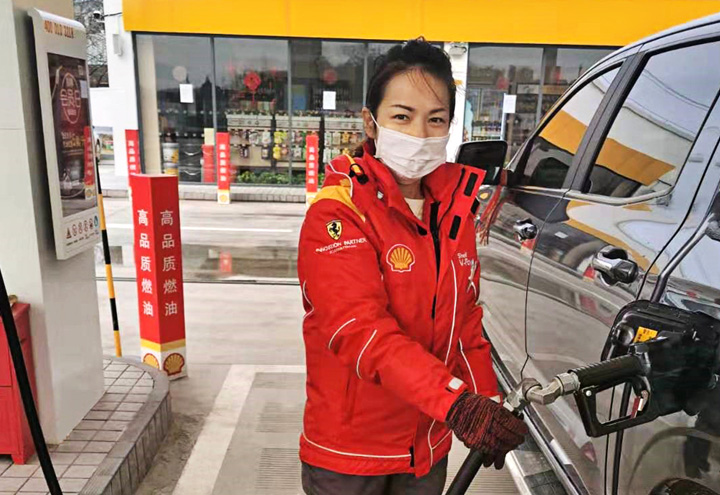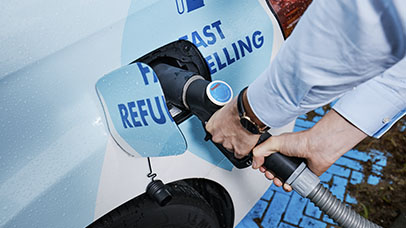Shell’s response to COVID-19
The COVID-19 pandemic continues to have a serious impact on people’s health and livelihoods around the world. Shell is working to assist in the fight against the virus and to support recovery efforts. We are keeping energy supplies flowing, and our refuelling stations are helping to keep emergency and delivery services on the roads.
The unprecedented macroeconomic impact of COVID-19 has led to a deterioration in outlook for commodity prices with significantly weaker demand for oil, gas and other resources. Lower prices may result in declining investment by companies in some countries. This would have a negative impact on government revenues at a time when economies and health-care systems require support.
In April 2020, the Board of Royal Dutch Shell plc took the decision not to continue with the next tranche of our share buyback programme and to reduce the dividend starting with the first quarter 2020. In October 2020, we announced a cash allocation framework that will enable Shell to reduce debt, increase distributions to shareholders, and allow for disciplined growth as we reshape our business for the future of energy.
From a tax perspective, we are monitoring costs, providing the business with the advice and support it needs and focusing on critical activities, such as submitting tax returns and making tax payments to governments.
Fiscal stimulus
Many governments have put in place measures to stimulate economies as the pandemic negatively affects business revenues and jobs. Some are aimed at industries other than ours or at enterprises smaller than Shell.
Where appropriate and when aligned with our Responsible Tax Principles, we will make use of fiscal measures. Before we apply any of these measures, we will consider both the letter and the spirit of the relevant government’s offer, only implementing these measures if they align with our core values and the Shell General Business Principles.
For example, in response to the challenging conditions facing the oil and gas industry – including a cut in oil production and the economic impact of COVID-19 – Norway introduced measures to stimulate economic activity in the sector. These measures included additional tax relief for capital investments made to the end of 2021.
We have made use of measures in some countries which allow taxpayers to submit indirect tax returns on a quarterly instead of a monthly basis. This has reduced the workload for our staff and pressure on systems and processes during the COVID-19 crisis.
Prepayments

Photo above: Shell's refuelling stations are helping to keep emergency and delivery services on the roads.
It is common practice in many countries for tax authorities to issue preliminary corporate income tax assessments during the fiscal year, requiring companies to make prepayments.
The economic impact of COVID-19 has adversely affected business profit margins around the world. This may result in lower corporate income taxes being paid, reducing available government revenues.
Some Shell companies have made tax prepayments for 2020 based on financial data that does not take into account the negative impact of COVID-19 on our profits. This may result in overpayments.
Where possible, we have revised these prepayment estimates for 2020 to account for the economic downturn and we are working with tax authorities on the latest estimates of our tax due.
How our businesses are helping
Our priority remains to support our colleagues, our customers and the communities where we work. We estimate that Shell’s total contribution during the pandemic, including donations of funds, fuel, food, equipment and services, amounts to more than $39 million [A].
Find out more about Shell's response to COVID-19 online: https://www.shell.com/covid19.
[A] As at August 14, 2020.
 Message from the Chief Financial Officer
Message from the Chief Financial Officer
 Shell’s approach to taxes
Shell’s approach to taxes
 Special topics
Special topics
 Our tax data
Our tax data
